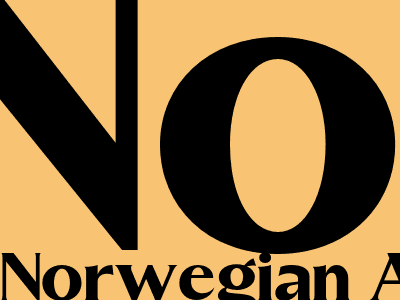
Norwegian Air Shuttle: Share Price Drops Despite Recovery
Introduction
Norwegian Air Shuttle, a low-cost carrier based in Norway, is facing headwinds despite signs of recovery in the airline industry. The company's share price has recently taken a hit, raising concerns among investors. This article will examine the factors contributing to the decline and explore the challenges and opportunities facing Norwegian Air Shuttle in the post-pandemic era.
Factors Contributing to Share Price Decline
Financial Losses and Debt
Norwegian Air Shuttle has been struggling financially in recent years. The airline reported significant losses in 2020 and 2021 due to the COVID-19 pandemic, which heavily impacted the aviation sector. The company also has a substantial debt burden, which has weighed on its financial performance.
Competition and Market Saturation
The airline industry is highly competitive, with established carriers and low-cost rivals vying for market share. Norwegian Air Shuttle faces intense competition from both legacy carriers and budget airlines, making it difficult to differentiate and maintain profitability.
Operational Challenges
Norwegian Air Shuttle has faced challenges with its aircraft fleet and operations. The grounding of the Boeing 737 MAX aircraft, technical issues with its 787 Dreamliners, and labor disputes have contributed to disruptions and increased costs.
Recovery and Challenges
Signs of Recovery
Despite the challenges, Norwegian Air Shuttle has shown signs of recovery in recent months. The airline has resumed flights to several destinations, increased its capacity, and announced plans for new routes. The easing of travel restrictions and pent-up demand for air travel are providing some tailwinds for the industry.
Challenges Ahead
However, the airline still faces significant challenges going forward. The lingering effects of the pandemic, rising fuel costs, and geopolitical uncertainty could hinder its recovery. Norwegian Air Shuttle needs to effectively manage these headwinds to regain profitability and sustain its operations.
Opportunities and Outlook
Restructuring and Cost-Cutting
Norwegian Air Shuttle has implemented a restructuring plan to reduce costs and improve efficiency. The company has renegotiated contracts with suppliers, closed unprofitable routes, and downsized its workforce. These measures aim to streamline operations and enhance financial stability.
Focus on Profitability
The airline is prioritizing profitability over growth in the post-pandemic era. Norwegian Air Shuttle is focusing on optimizing its network, improving yields, and managing costs. The company aims to achieve a sustainable business model that ensures long-term profitability.
Sustainability and Innovation
Norwegian Air Shuttle is committed to sustainability and innovation. The airline is investing in fuel-efficient aircraft, exploring biofuels, and implementing green initiatives to reduce its environmental footprint. The company is also exploring new technologies and partnerships to enhance the passenger experience.
Conclusion
Norwegian Air Shuttle is navigating a challenging environment while showing signs of recovery. The airline's share price drop reflects the headwinds it faces, including financial losses, competition, and operational challenges. However, the company is implementing strategies to restructure its operations, prioritize profitability, and focus on sustainability and innovation. The outlook for Norwegian Air Shuttle remains uncertain, but the airline is determined to emerge from the pandemic as a stronger and more resilient carrier.